Taught to make the powerful accountable, when the media students watched the traditional wisdom operating in reverse on the ground, most of them decided against pursuing journalism as a career. Every year, three Kashmir universities produce almost 100 masters in media studies. Minhaj Masoodi reports about how the prevailing situation added a dominant attrition factor well before the students could move out of the campus and start hunting for jobs
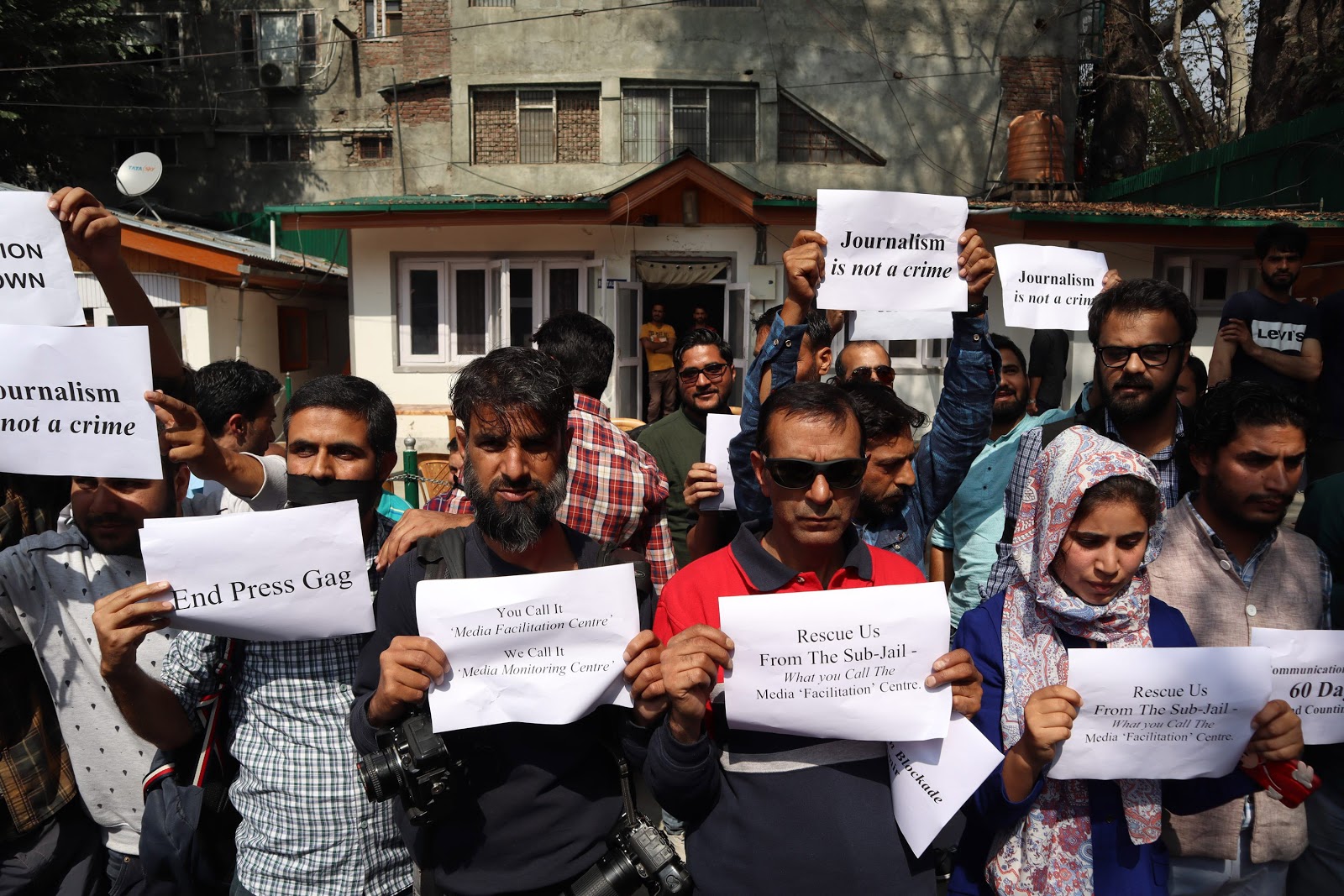
A master’s student at the University of Kashmir’s Mass Communication and Journalism, Mutahir is awaiting his result after appearing in the final examinations. Results are awaited but he has already decided not to pursue journalism as a career.
Mutahir had initially done a bachelor’s degree in journalism. After finishing his graduation in 2018, he opted to join the field to gain some exposure and experience. In 2019, he enrolled himself for a master’s programme along the way.
Always upbeat about the happenings around, and an eager learner in the class, his motivation deserted him midway, although to no fault of his.
Enthusiastic and eager about journalism, Mutahir had only been two weeks into his master’s degree when Article 370 was read down on August 5, 2019. By the time situation started reverting back to ‘normal’ in February 2020, reports of a very infectious virus infecting people were fast emerging.
In March, the university only opened for 10 days before the lockdown was enforced for the second successive time, never to open again for offline classes.
It was during the lockdown that Mutahir received a mail from a company that led him to weigh his options. “One day during the lockdown, I was sitting at home when I suddenly got a mail from Byju’s,” Mutahir said. Mutahir said he pondered over the mail weighing the pros and cons of leaving journalism and getting into a company such as Byju’s. “I felt the opportunity was good, so was the salary. I decided to go for it.” He joined the company for the probation period.
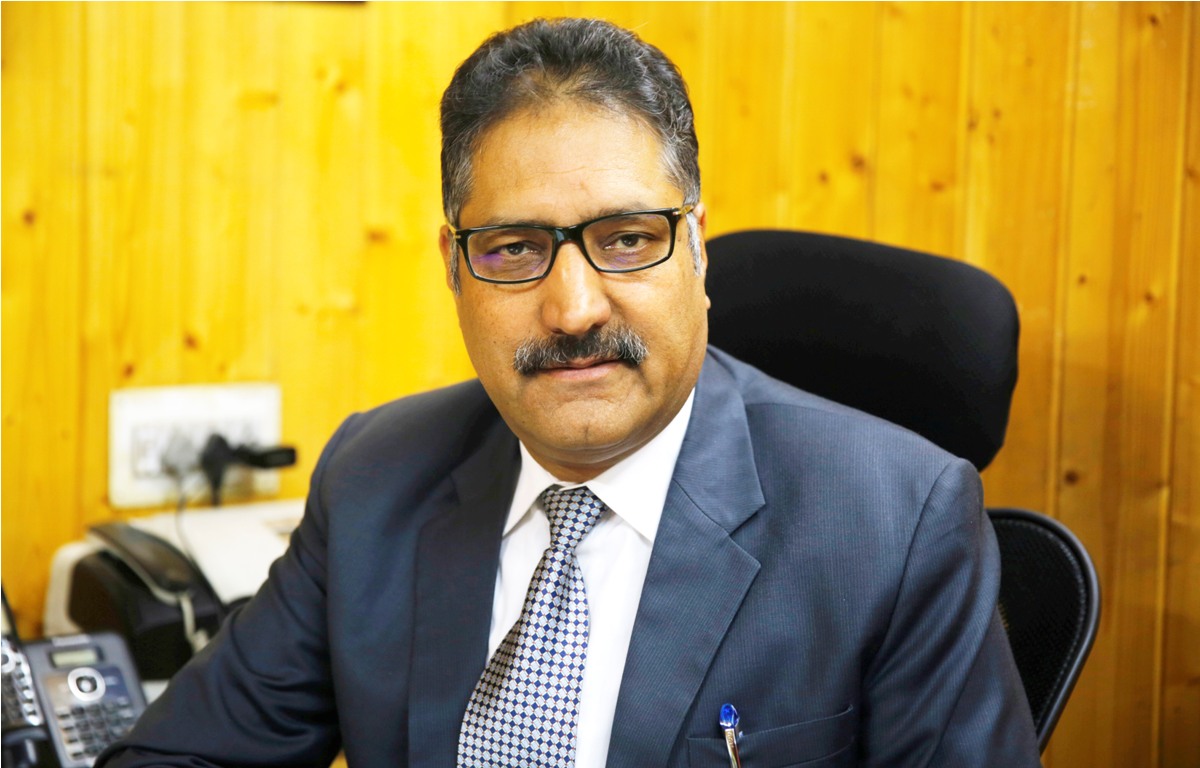
Two months later, evaluation took place and Mutahir was promoted. “I witnessed immediate growth, almost 100 per cent growth.” But doubts were still there. However, safety concerns and better prospects of money finally convinced him to leave journalism for good.
“I had already worked in the field after my bachelor’s. My parents would always be worried. I was not allowed to come home late. Whenever the news of encounter broke, the first call that I received would be from my parents, asking me to come back home.”
He said they would persistently keep calling till he used to give in to their protestations. “I could understand their concerns.”
It impacted Mutahir’s work, however. Although, he never got into ‘trouble’, but the condition of his fellow colleagues disheartened him. “One of my colleagues was once called by NIA. When I saw his condition, his organization disowned him. They have their own compulsions. I figured even though I am working with an organization, but at the end of the day, I will be on my own.”
His parents worry increased after the incident. “Their concerns for my safety only increased. We were taught that the meaning of journalism was holding power to account. But, since it has cost these days, it is better to start a food cart somewhere.”
He said that a lot of senior journalists were finding it difficult to work in the current circumstances. “What would a newbie like me do,” he asked.
The salary was another component. “If I remained in Kashmir, I would have to work on a meagre salary. I decided the offer from Byju’s was good and headed for the plains.”
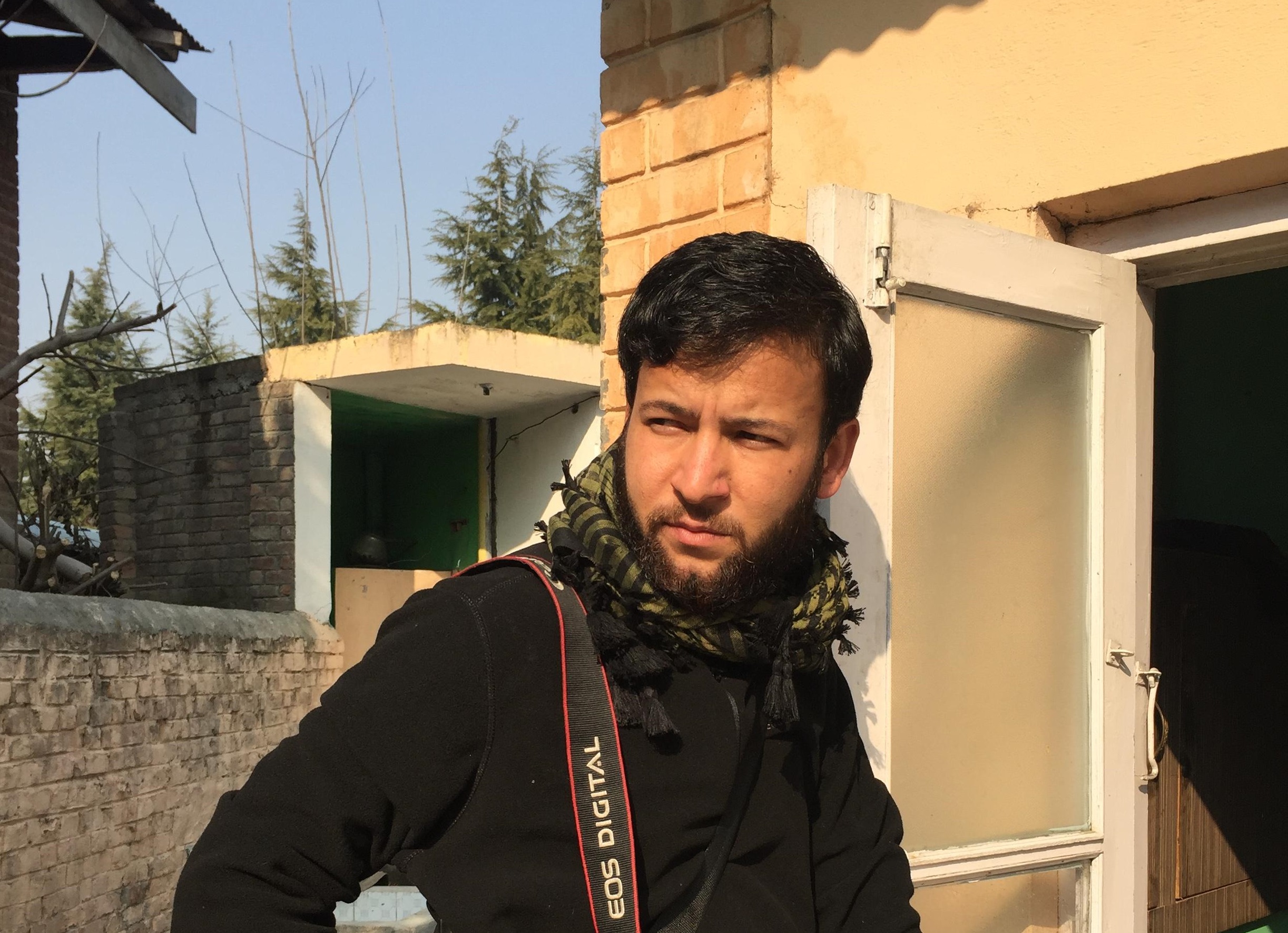
Not Sudden
Another person, Muzammil’s decision to join journalism was not sudden like most of his peers. It evolved over a period of time. “There were a lot of people in my class who opted for masters in journalism without any proper thought. My reason was different.”
As an eight-year-old, when he would be asked, what he wanted to become, unlike other kids whose answers often circled around either becoming a doctor or an engineer, Muzammil wanted to be a celebrity. “I wanted people to know me,” he said in a matter of fact manner. He even wanted to be a singer for a while only to realise that it is not considered dignified in society.
During the 2008 unrest, when Muzammil was in class 10, he found himself fascinated by TV. “I wanted to join the TV industry because I realised there was izzat.”At this point, he realized that he was going to pursue it as a profession. After completing his twelfth standard, he wanted to directly go for a bachelor in Journalism.
However, his parents refused him permission. “My father had seen a journalist getting beaten and said no.”
He finally graduated in Commerce. Meanwhile, he started hosting a show at Doordarshan. During this while, he appeared in the entrance exam at Kashmir University for a master’s but his selection was not to be. “That was a turning point. Somebody had seen me hosting a programme on DD they approached me saying we need to shoot an ad. They required a guy for that.” This opportunity opened other avenues for him. Muzammil went o Delhi and even ended up acting on some short movies also.
However, only a bachelor’s holder, he wanted to pursue a master’s. He was bombarded with ‘advice’ and ‘suggestions’. “The NGO I was working with advised me to do master’s in Social Welfare, my cousins wanted me to do an MBA while I was desperate for journalism.” Caught in a dilemma, he appeared for all three in 2015 at Kashmir University. “Fortunately, or unfortunately,” he said, “I was selected in all three.”
But the result was out for journalism first. He got to know about his selection through a college friend. “It was a late evening that day I got to know and next day was the last date. I completed the admission formalities the next day and thus began the journey.”
In the third semester, he started working with an online magazine. “We did some fabulous work. Videos were not a fad back then. We were a bunch of guys who started making daily reports,” he said. “But there are a lot of things one should be cognizant of before one embarks on a journey of pursuing journalism as a career choice.” He said there is a lot of risks involved. “I remember I was covering student protests in 2017. I was live broadcasting the video. 4500 people had joined the live session. That day, our page saw a single-day increase of 25000 followers. I got very nervous that day.”
“There are a lot of precautions that you have to take regarding the environment you operate in.” And then there was the issue of salary also. “Although we learnt a lot at the end of the day, but the house does not run on prayers.”
After some time, Muzammil co-founded a multimedia production company. “We started producing ads, concept-based ads with full technical know-how. That was going very smooth.” But due to the reading down Article 370 on August 5, it all went downhill for Muzammil.
“You need a perfect environment to operate in, but that is rarely possible in Kashmir.”
Without a job, Muzammil flew to Delhi. He became a copywriter at a company. “I did reasonably well for some time. But then Covid came, people were laid off and I was one of the victims,” he chuckled, “Maybe we were just an unlucky batch.”
Dejected, he came back home, quitting journalism in all forms. “I have now started work with a small pharma-based startup. Journalism is not viable here.”
Dropping Out
Basit did his bachelor’s from Government Degree College Baramulla. “I had journalism as my vocational subject during bachelor’s.”
From his batch, out of 10, he said, five have either shifted to other streams or have discontinued their studies altogether. He is currently pursuing his master’s in Convergent Journalism from Central University, Kashmir. In his class, however, close to a dozen students have already cancelled their admissions.
“We were initially 36 students who had completed admission in the course. 2-3 students left in the initial days. However, by the end of the first semester, nearly, 11 more students left. “Currently, we are 22 students in the class.”
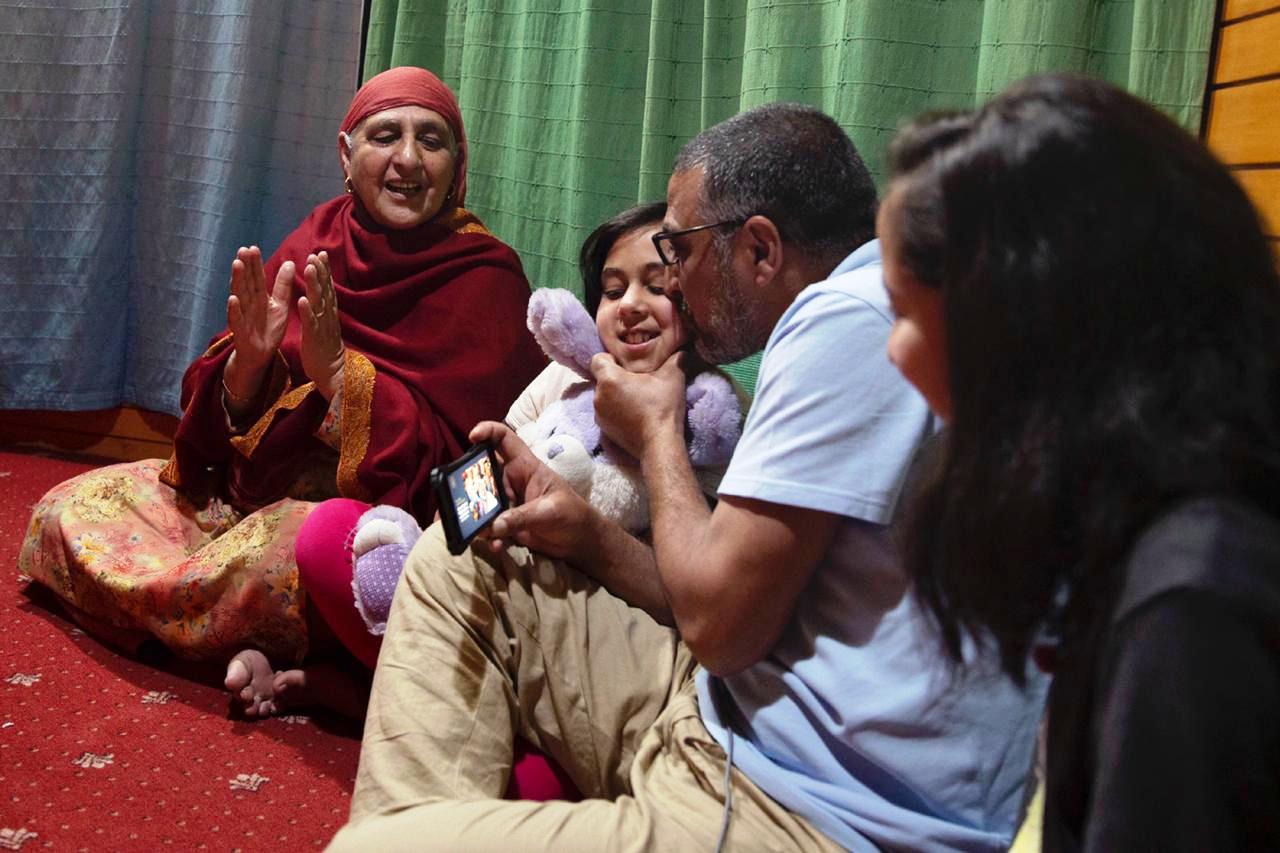
Left Midway
One among them was Shaista. Having done her Bachelor’s in Arts, she studied journalism at Central University, even appeared in the first semester exams, but ultimately chose to leave the course midway. She said the reasons were varied.
“I saw a lot of stuff going on around me. I read about journalists being summoned and beaten. It unnerved me,” she said. “I had a lot of questions about my safety and security. And I was also a girl. There are a lot of things that you have to consider.” She said, she quit, before she would have reached a point of no return. “Even though I appeared for my first semester exams, and I was doing decent, but things seemed very unfeasible.”
“We have a neighbour here. He is a master’s degree holder in journalism. He left it. He now works as a private school teacher besides running a provisional store.”
Shaista is now doing her master’s in another subject from the same university.
Customer Executive
Mahira, another graduate in mass communication and journalism from Government Degree College Baramulla is now working with Flipkart as a customer executive. Mahira found a chasm between what was taught in college and the ground realities. She found her college teaching idealistic.
And then, there were concerns that she had regarding safety as well.
“It is risky practising journalism in a place such as ours,” Mahira said. “If it was just about doing my job, I wouldn’t hesitate. But the fact, you are not the only one impacted, but your family also gets involved, that is too much risk for one to take.”
Works At Clinic
Faisal Chaku is another postgraduate in mass communication and journalism. He said that he had opted for the course for filmmaking and other stuff. “But there were not many courses regarding that.”
There aren’t many avenues except for doing journalism in the field. Other aspects of mass communication have either been totally ignored or are at the infancy stage. “I realized there is no future. Even started a business for a while, but even that is down due to Covid.” Chaku now works at a clinic now. “I deal with accounting etc. at a clinic.”
Growing Aversion
Although, the aversion to the profession is in infancy but it seems to be growing. Kashmir University’s Media Education Research Centre, which was the pioneer institute in media studies in Jammu and Kashmir has 40 vacancies across categories for its master’s programme. “But, the rolls have been dwindling,” said one of the faculty members.
For the last three-four batches, the number of students has hovered around 30. “We advertise 40 seats. We have a roll of 30 students on average. One of the reasons is also job saturation. There aren’t many opportunities,” the faculty member said. People also now tend to go outside to study, the faculty member further said.
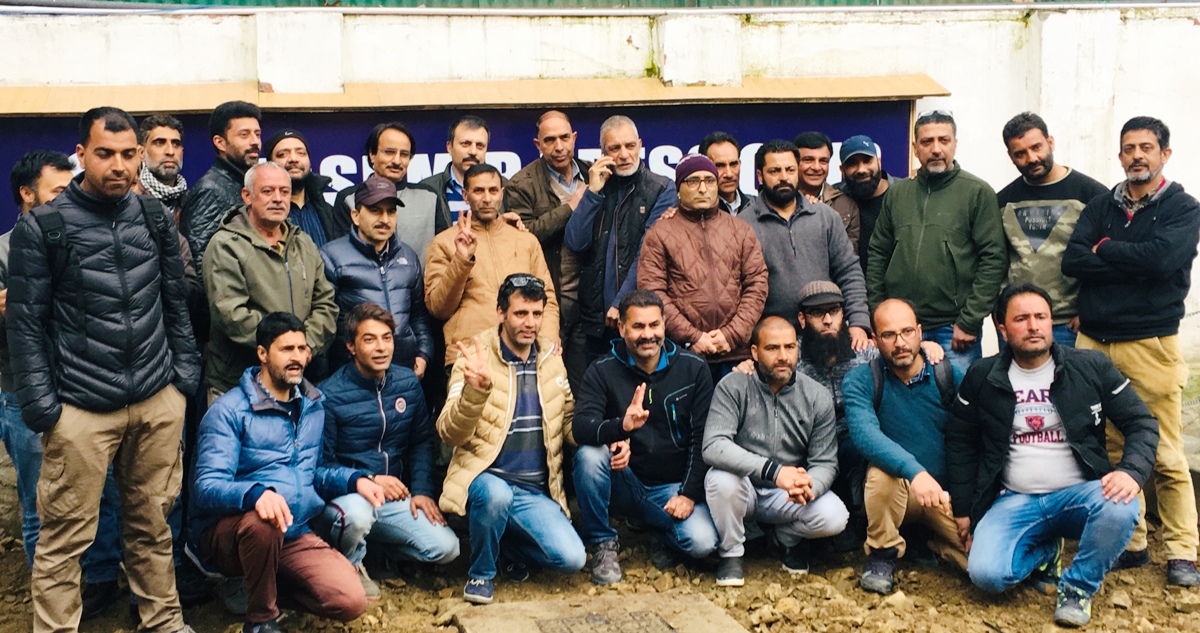
Similarly, Central University also has around 40 seats in its master’s programme while Islamic University offers around 20 seats. One of the students studying in the final semester at IUST said: “Against 20 seats, we are only 6 students in the class. We were eight initially, but two dropped out.”
Apart from these universities, Journalism is also taught at the bachelor’s level at Cluster University of Srinagar, Baramulla and Anantnag Degree Colleges.
Many Reasons
Dr Syeda Afshana, who is an Associate Professor at Media Education Research Centre said there are many reasons for growing aversion towards pursuing journalism as a career. “Firstly, the media landscape in Kashmir is quite different. Things in journalism here are unusual from whatever is prevalent outside due to lack of media culture or a little history of independent media combined with the political instability of the place.”
Additionally, she said with a dearth of big business houses resulting in economic dependence of news media organizations, and the presence of a somewhat passive audience, a complacent media culture is getting perpetuated. “Vernacular press has stereotyped into a classic tradition of just filling the newsprint, without any serious effort to project the ground realities in-depth. As far as English press, reporting has not completely come out of the confines of ‘causalities’ and ‘press releases’,” she believes.
She further said that meaningful engagement with the new technology is yet to develop fully. Almost all of the newspaper sites are still just online versions of the print copies. She said that there is a very raw attempt on improving upon online content using various software and internet technologies like podcasting and videocasting, something that is too imperative for contemporary journalism.
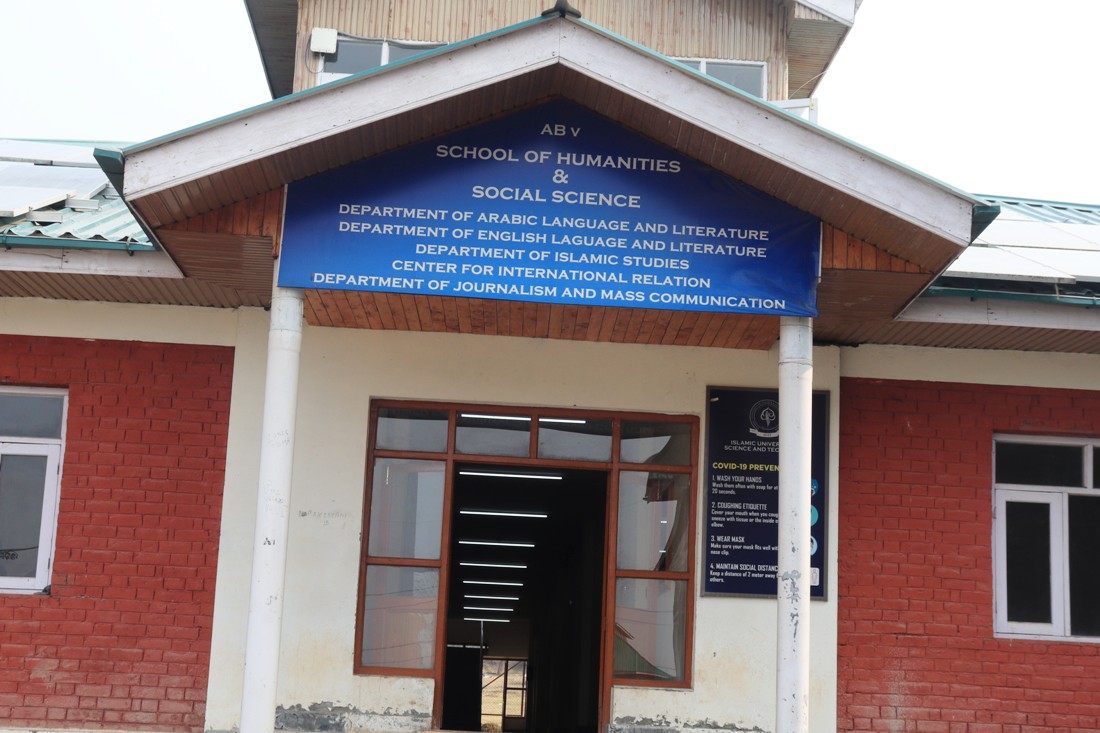
Talking about the current challenges to media in Kashmir, she said it is facing crisis in terms of 3Cs – Conflict, Censorship and COVID-19. “Many changes happening right now, from daily doses of violence to harsh laws to laying off, are going to last for many years. And in a way, shape the future of journalism here,” she said. “We are witnessing a kind of decadence over our information and political institutions, and doing journalism in such ‘de-legitimization’ is a tough call.”
Dr Rashid Maqbool, who also teaches journalism, said it is normal that not everybody opts for active journalism. “Some people choose PR, advertisement, some even choose business. Some go to entirely different sectors. Even from our batch, when journalism was booming, some still chose to go for other sectors.”
New Turn
Maqbool said 2005-06 saw a new turn of journalism in Kashmir with new journalistic platforms came to the fore. “All new graduates would get adjusted here only. The salary was not very good, but still better. But people would opt-out.”
World over we know some people work for some time and then they abandon it, they went to book writing and other things. That is a normal trend. Not everyone can stick to one profession for a lifetime. Some go to teach.
Lack of Avenues
Conceding the limitations of the media industry Maqbool said, “We see that journalism has been opened at the college level and university level. The output of students has increased very much than it was in last 5-7 years. But the industry does not have that kind of capacity to adjust everybody in a small place like Kashmir. It has its own limitations.”
“On one hand you are churning out many more people and you don’t have that kind of demand in the market. There is a lot of saturation,” he said, insisting the market is very small. “Different facets of mass communication are not available here. We do not have a good PR Industry here. We do not have a good advertising industry. We don’t have a good filmmaking industry. All over India, Mass communication graduates find jobs in one of the allied sectors which we do not have. There is no private sector either.”
Badly Hit
The current situation is a major factor. “Media industry has been hit badly. It has lost its vibrancy. Money has increased in certain ways. Money is in certain kinds of organizations and they are making very good money. But many others are struggling,” he said.
However, he said there is some hope that online media has been monetized. But they are still in the infancy stage. “And on the other hand, the market is also very small. And there is not much literacy in that regard.”
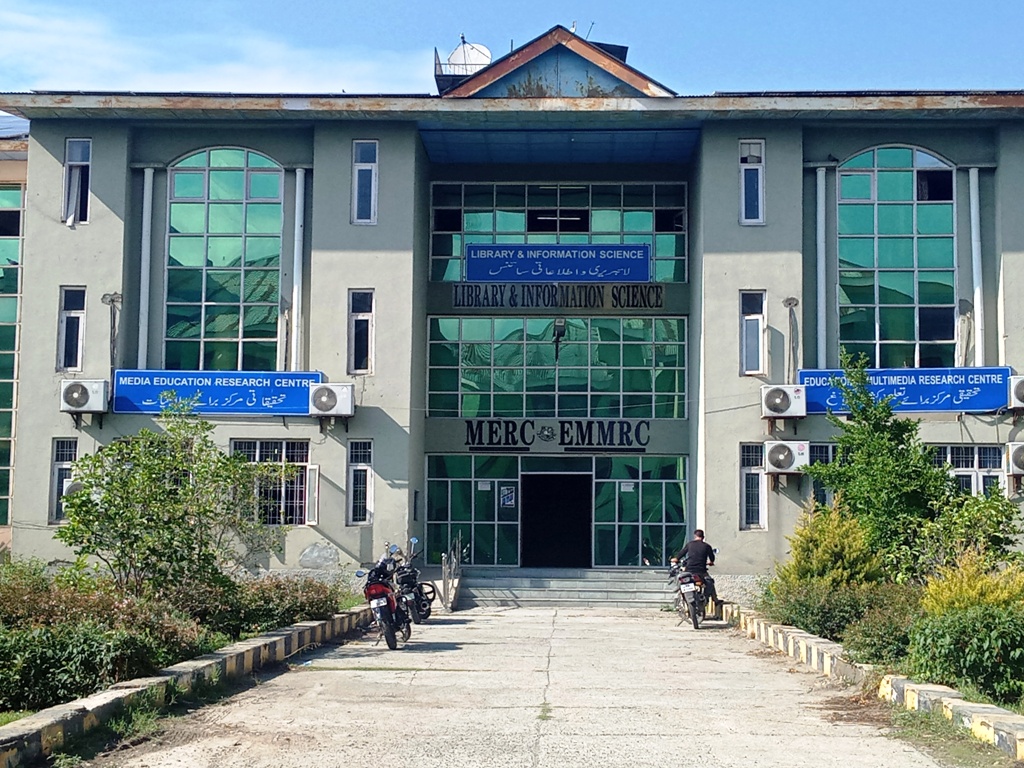
Need To Diversify
Maqbool said that he has been suggesting to media departments the need to diversify. “They need to also focus on media management. You need to train and motivate students. It is not a matter of training. It is also a matter of motivation.”
He asked why 4-5 students cannot come together to create an entertainment channel or a media concern. “It is not a big deal. Young people know everything about mobiles. They know everything about mojo. Technically speaking, I often take help from young boys like you. They should be more industrious and motivated.”
Not Sustainable
Maqbool said that Kashmir cannot sustain producing these many journalism graduates until they diversify. They need to diversify a lot and focus on different areas and facets of mass communication. They have to expand to mass communication.
“They have to go into media research, market research, media management, entrepreneurship, new media, data journalism, entertainment, filmmaking, crisis management and communication. Only then can it be sustained,” insists Maqbool. He said then they will be able to add marketability to their human resource. “It is not catering to all the sections and facets. We have to be producing students for the global market not the local market.”
(Some names of the students quoted in the report have been changed on request)















